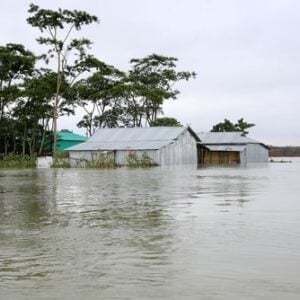A new three-year initiative aimed at boosting disaster and climate resilience in the Western Balkans was officially launched in Belgrade, focusing on Serbia, Albania, and North Macedonia. Supported by the Government of Italy and implemented by the United Nations Office for Disaster Risk Reduction (UNDRR) and partners, the project seeks to accelerate targeted disaster risk reduction actions, including enhancing early warning systems, improving risk governance, and fostering transboundary cooperation in response to growing threats from floods, earthquakes, wildfires, droughts, and other climate-related hazards.
The launch event brought together key stakeholders from national governments, international organizations, civil society, and the donor community. Representatives from Serbia’s Ministry of Interior Emergency Management Sector, Ministry of Finance, the Republic Hydrometeorological Service, and other institutions joined development partners such as the EU Delegation, World Bank, and UN agencies to reaffirm collective commitment to regional resilience.
Serbian officials emphasized that disaster risks cross borders and require coordinated and forward-looking responses. Enhancing resilience in Albania, North Macedonia, and Serbia through improved risk knowledge, governance, early warning systems, and transboundary cooperation was highlighted as a shared regional priority. The Serbian government expressed appreciation for the support of the Italian Agency for Development Cooperation (AICS), UNDRR, and all partners involved, underlining the importance of solidarity in addressing disaster risks.
Italian Ambassador Luca Gori described the project, “Strengthening Transboundary Collaboration and Capacities on Disaster Risk Reduction and Early Warning Systems in the Western Balkans,” as a concrete step in civil protection cooperation, noting that Italy’s funding and expertise will help integrate Serbia’s national system into the European Civil Protection Mechanism. The initiative aims to save lives, build resilient communities, and promote inclusive approaches that consider women, vulnerable groups, and local communities.
UNDRR’s Chief for Europe and Central Asia, Natalia Alonso Cano, highlighted that the initiative supports broader regional aspirations, strengthening disaster risk governance and cooperation while contributing to Serbia’s EU accession path. The project, running until 2028, aims to promote risk-informed investments and embed disaster risk considerations into national planning and budgeting.
Key areas of focus include enhancing early warning systems through real-time data platforms and disaster loss tracking, strengthening risk governance by integrating disaster risk reduction and climate adaptation into national frameworks, and empowering local communities through strategic planning and urban resilience initiatives. Regional collaboration will be central, leveraging Italy’s civil protection expertise and aligning with EU mechanisms to ensure coordinated disaster risk reduction strategies. This initiative represents a significant step in Serbia’s commitment to building a safer, more resilient future for the country and the wider Western Balkans region.







